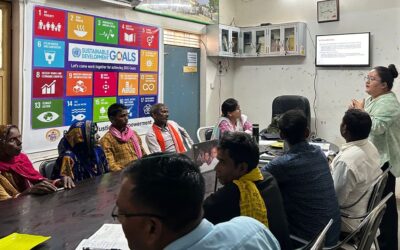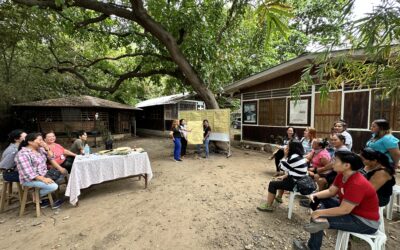The Free the Slaves Community Liberation Toolkit is a key capacity-building tool to catalyse a civil society movement against slavery. Designed to train frontline field staff in anti-slavery strategies and integrate anti-slavery activities into the work of high-impact international development organizations, the toolkit distils the knowledge, skills and norms needed to implement the Free the Slaves community-based approach to change the conditions that allow modern slavery to exist.
Our interactive and intensive multi-day trainings are usually conducted in-person, but COVID-19 has required adapting our training strategy. Experts have converted our training module on strengthening the rule of law into an online-friendly format. The pilot test last month in was a terrific success.
Nineteen representatives from 14 organizations, most of them field staff, came together for five days of intensive digital training on training module three, Strengthening the Rule of Law.
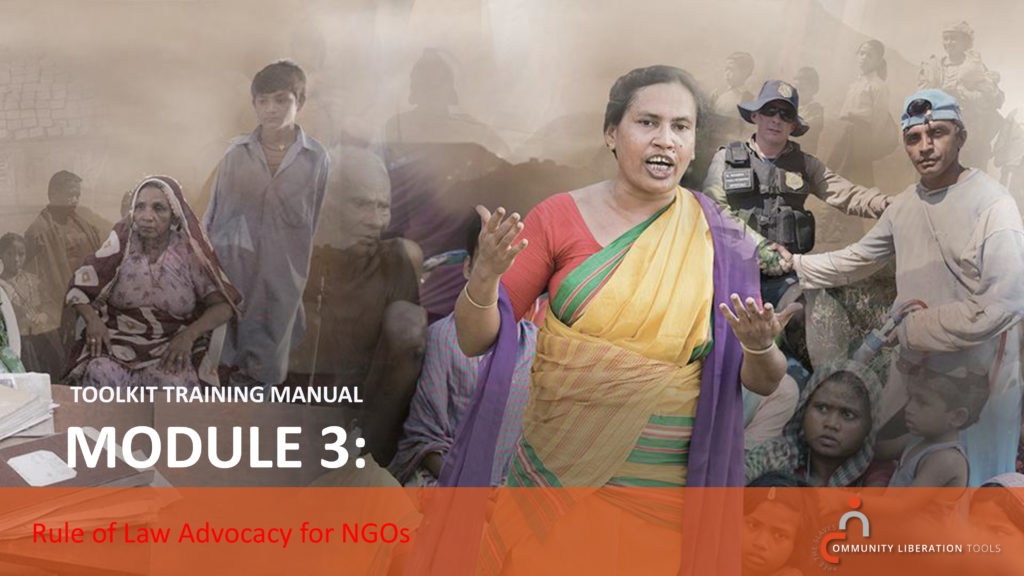
“Every day the training sessions were interactive and very fruitful,” one participant said. “Breakout sessions and group work were very helpful. I can utilise the mapping of stakeholders and follow the advocacy cycle immediately in my work.”
“As a field implementation staffer the content was new and informative for me. I learned a lot and with this learning, I can do my work more effectively,” said another participant.
The rule of law module focuses on developing an understanding of human trafficking policies and cultivating policy advocacy skills. It provides essential information for civil society organizations to train police, judges and other local authorities on slavery detection and prosecution, as well as justice for survivors. Sessions focussed on policy analysis, coalitions and lobbying, the advocacy cycle, engaging with media professionals, monitoring and evaluation of advocacy activities, and developing a rule of law advocacy plan.
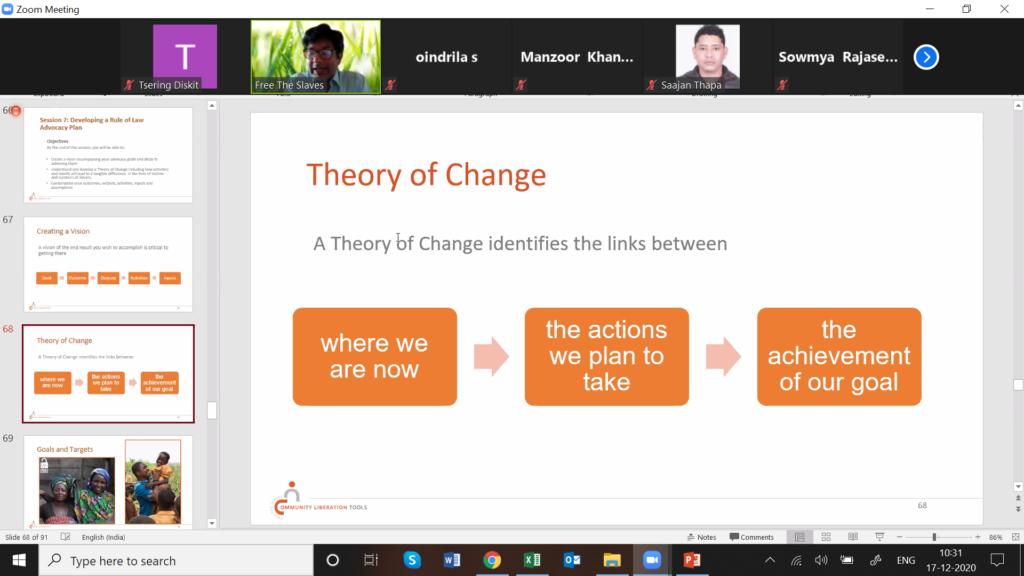
Sessions were strategically divided into two distinct meetings each day, considering online attention span and screen fatigue. Midday breaks were filled with interesting offline exercises on practical field aspects and self-customisation of the materials for individual organizational needs and priorities.
“Breakout sessions in small groups were a very good strategy, this helped every participant to share individual experiences,” said one participant. “Being a lawyer, it gets difficult for me to capture the other aspects of cases. But in these sessions, I learned a lot from the program side which would help me to have a lens of looking at the cases from other perspectives.”
“Our organisation works on the prevention factor in cases, but here we learned about protection & prosecution as well. For me the most important and interesting session was the M&E,” another participant said.
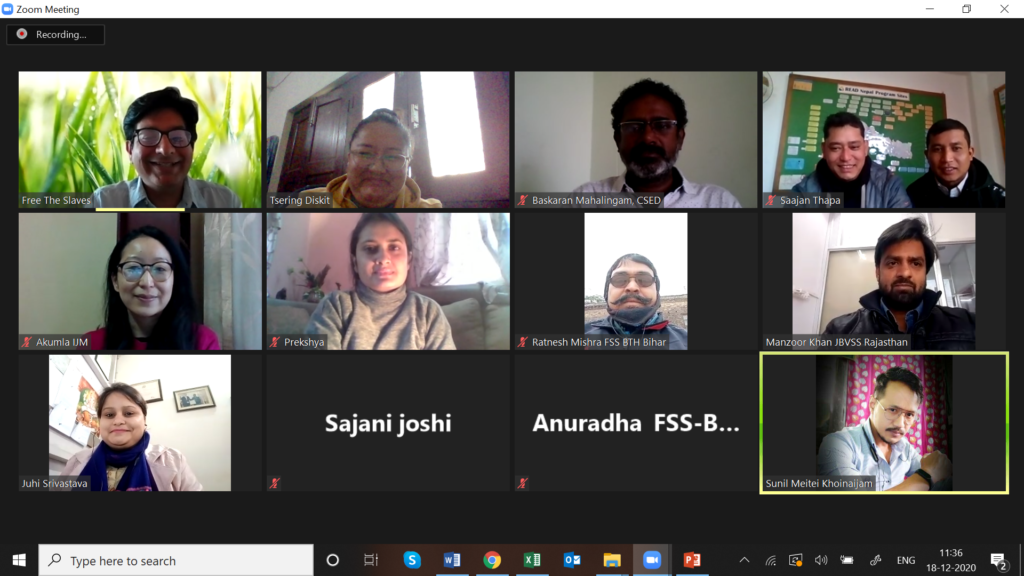
The rule of law virtual workshop was a pilot training for Free the Slaves. Work is underway to convert other modules of the Community Liberation Toolkit to virtual format. Learn more about the toolkit here.


